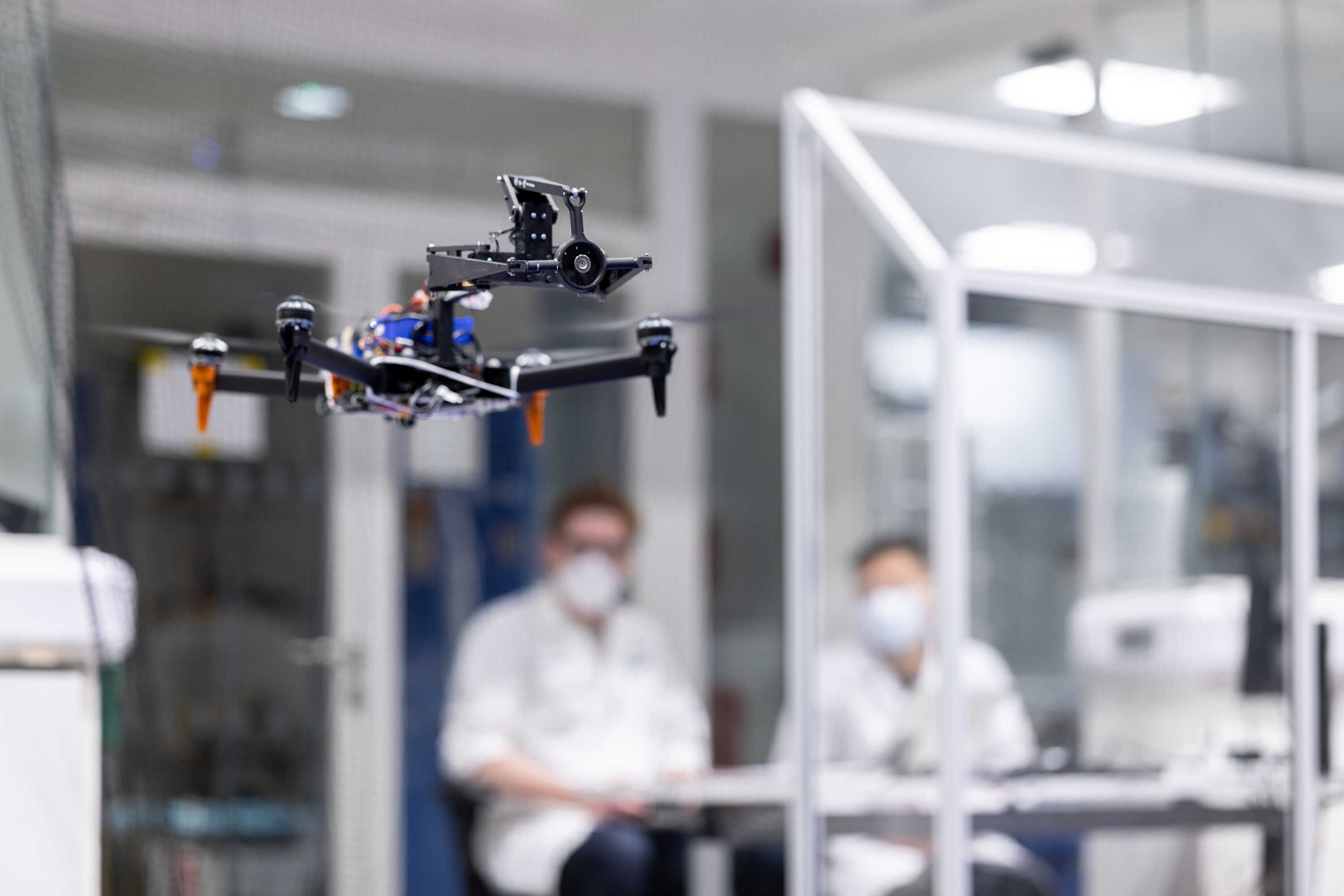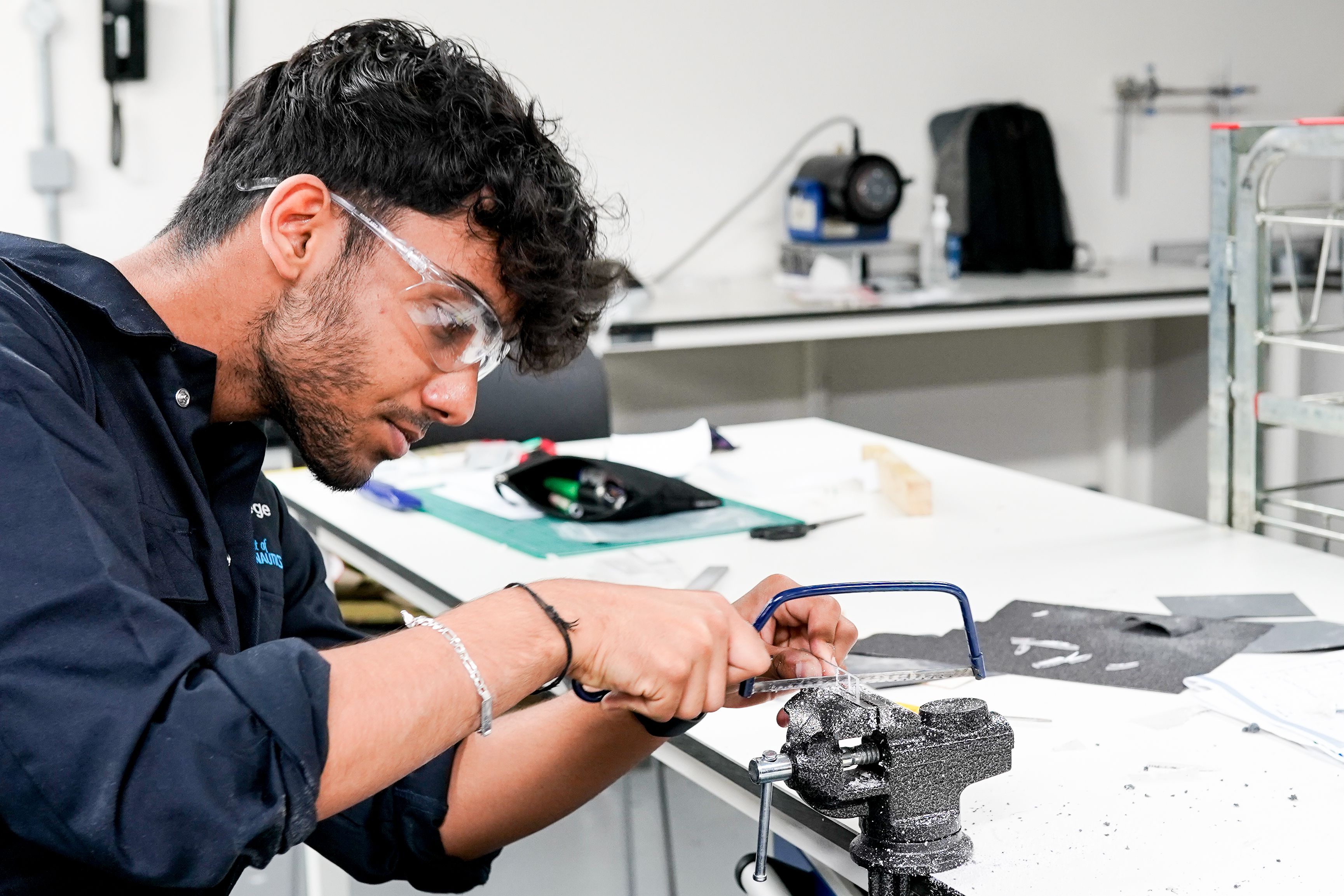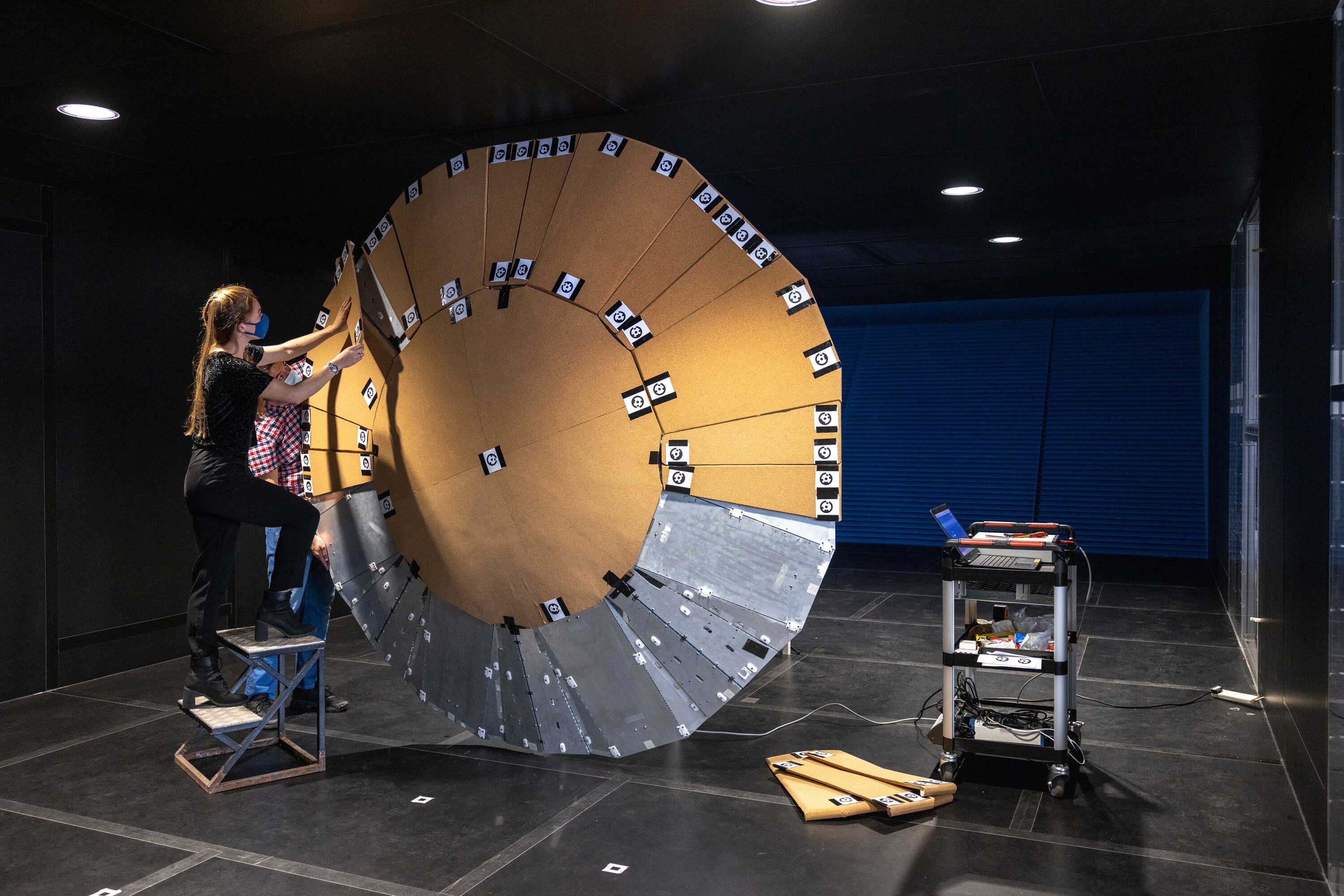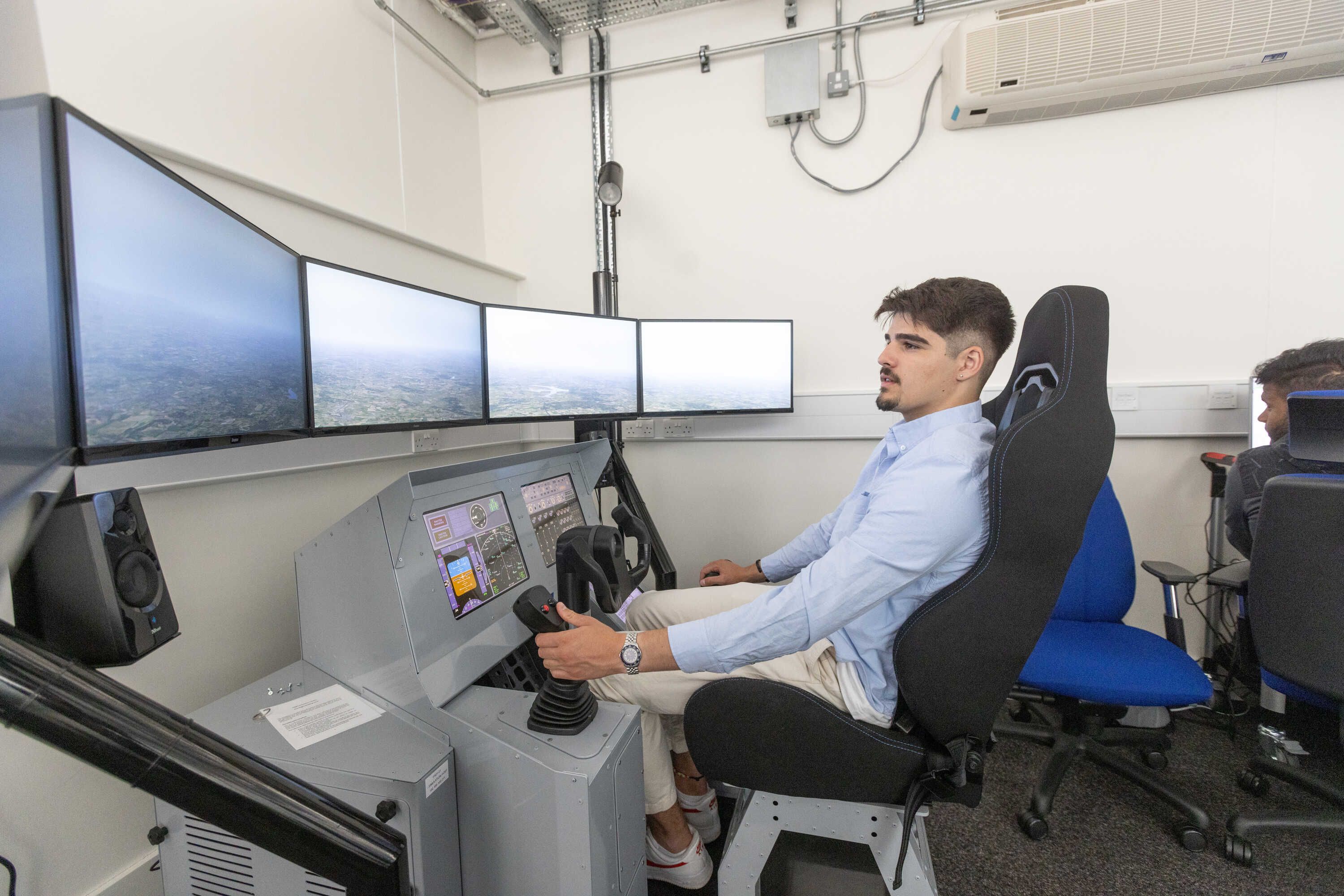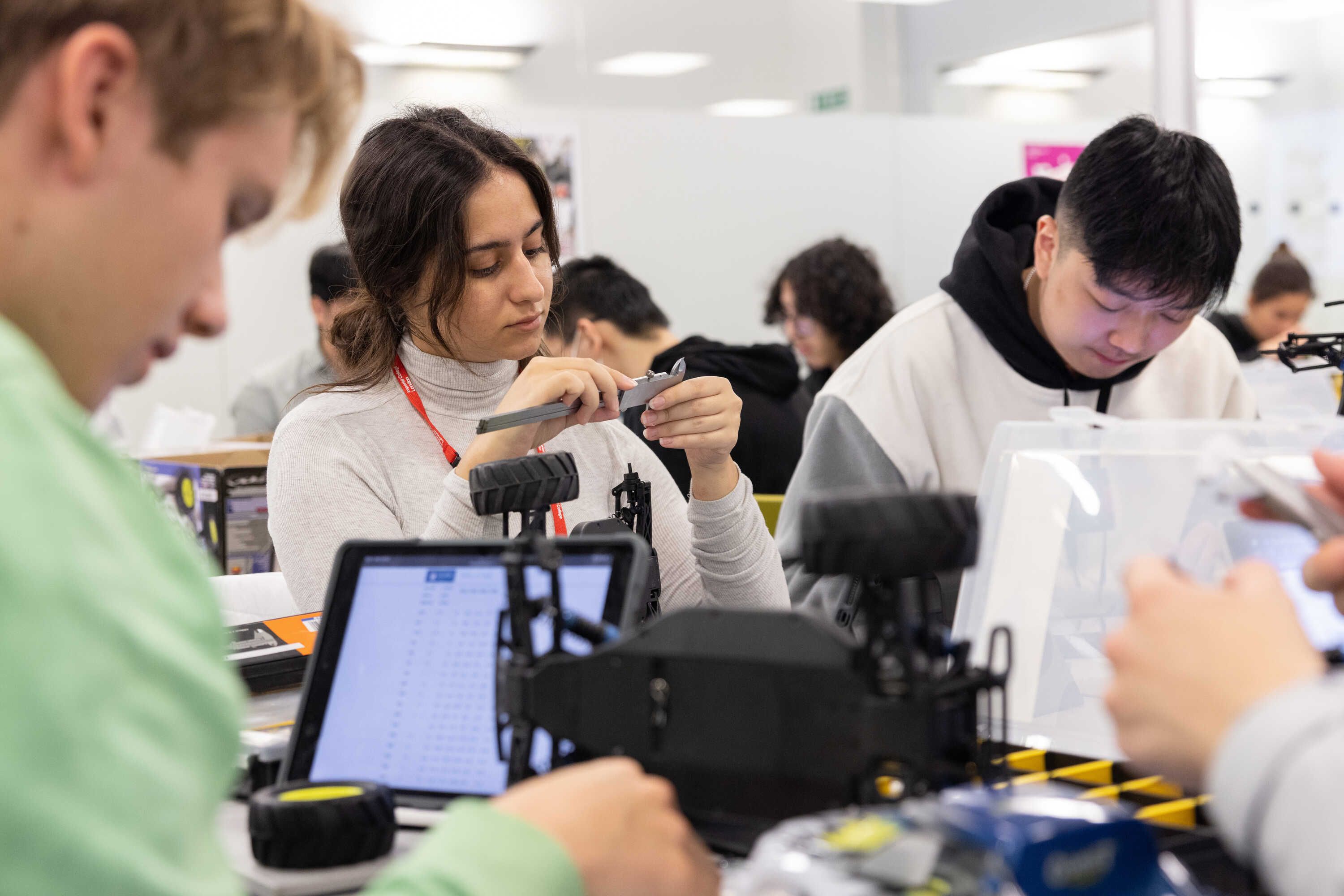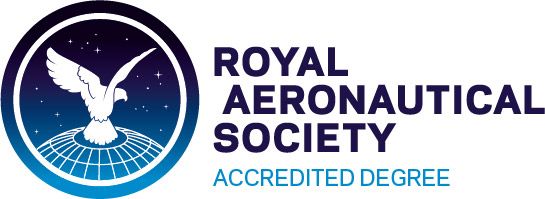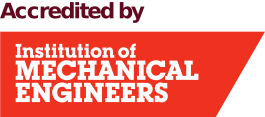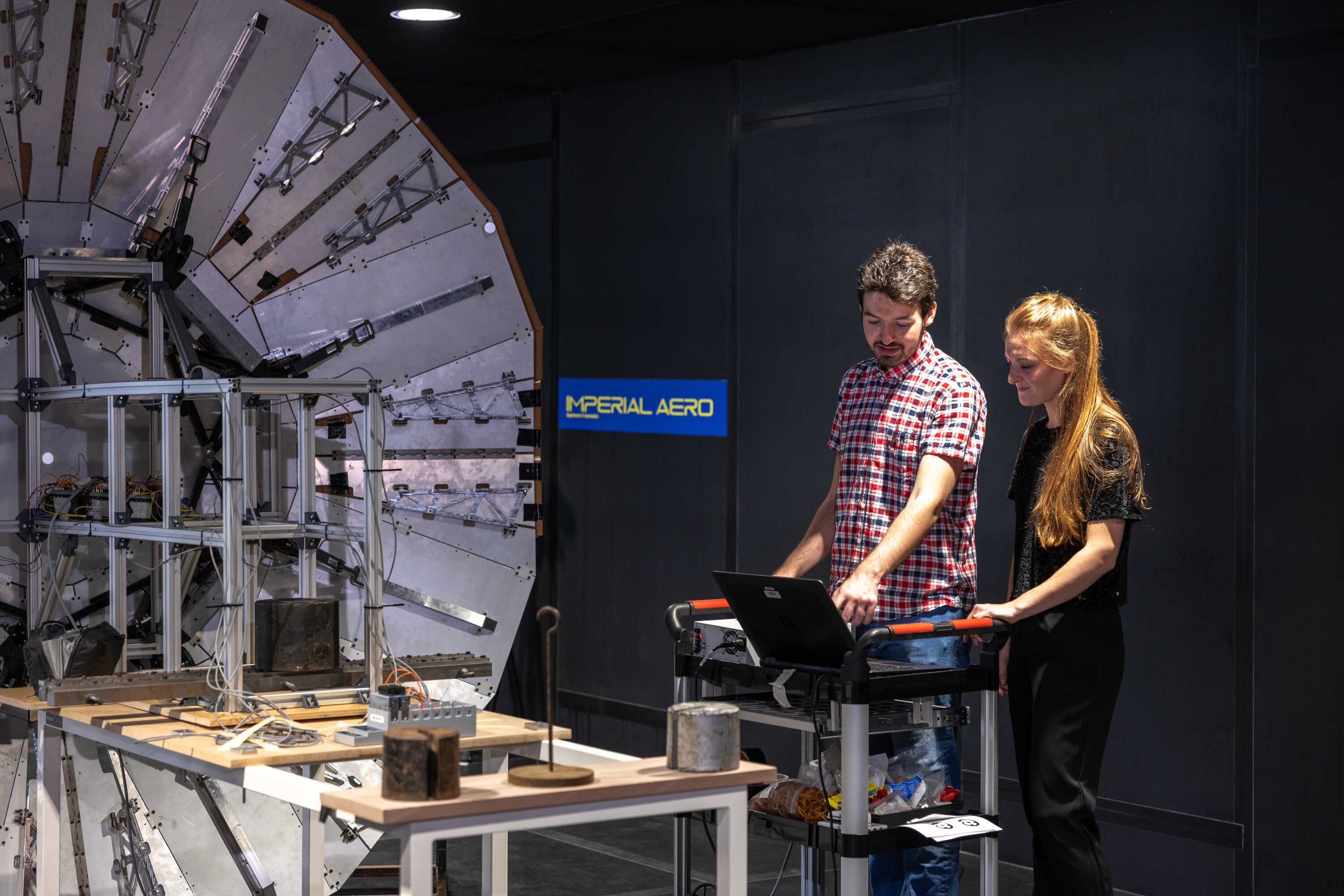
Aeronautics with Spacecraft Engineering
Specialise in the design of space technologies in this professionally accredited, integrated Master's degree.
Acquire the engineering, computational and analytical skills required for a career in the aeronautical industry
Work on a group design project from conception to its feasibility stage
Complete a space-related individual research project in an area of specialist interest
Course key facts
-
Qualification
-
MEng
-
-
Duration
4 years
-
Start date
October 2025
-
UCAS course code
Apply to H401
-
Study mode
Full-time
-
Fees
£9,535 per year Home
£43,300 per year Overseas
-
Delivered by
-
Location
-
South Kensington
-
-
Applications: places
9 : 1 (2023)
Minimum entry standard
-
A*A*A or A*AAA (A-level)
-
40 points (International Baccalaureate)
Course overview
Acquire the engineering, computational and analytical skills required for a career in the aeronautical industry in this professionally accredited course.
As part of the specialist spacecraft stream, you'll be equipped with an analytical skill set appropriate to the design of spacecraft technologies.
You'll also gain an insight into the unique challenges involved in designing space systems for launch and operation, working in the start-of-the-art learning environment provided by the Department of Aeronautics.
During your first two years, you'll develop a strong grounding in the three disciplinary pillars of aerospace engineering: aerodynamics, lightweight structures and structural mechanics, and flight mechanics and control.
The second year includes further specialised aeronautical material.
You'll explore mechatronics, flight mechanics, propulsion and turbomachinery, and have the chance to attend a flight testing course at the National Flying Laboratory Centre at Cranfield University.
Your work will be assessed by laboratory-based coursework plus design, make and test exercises to develop your design and analysis skills.
You'll develop your expertise further on a group design project in the third year by taking a design concept to the stage where feasibility has been fully explored.
Projects in recent years have included a manned mission to Mars, and a horizontal and vertical launcher vehicle for small payloads.
Your study reaches Master's level in the fourth year, with further core modules relating to the design of spacecraft technologies and a choice of research-led modules.
In the final year, you'll complete a space-related individual research project in your chosen area. This is carried out with departmental specialists, or as an external project with an internationally leading engineering company.
Structure
This page is updated regularly to reflect the latest version of the curriculum. However, this information is subject to change.
Find out more about potential course changes.
Please note: it may not always be possible to take specific combinations of modules due to timetabling conflicts. For confirmation, please check with the relevant department.
You’ll study these core modules.
Core modules
Become familiar with aerodynamic essentials including the basic laws of motion for incompressible fluid flow.
Discover the fundamental concepts for all structural analysis and learn how to apply them.
Approach mathematics as a logical and structured discipline and acquire the skills needed to move on to more advanced study.
Explore classical mechanics and develop your understanding of statics, kinematics and dynamics.
Learn the essentials of thermodynamics, gas dynamics, and heat transfer and build your foundational knowledge of propulsion and aerodynamics for more advanced study.
Examine the microstructure and mechanical response of all classes of engineering and natural materials.
Learn about the broad types of aerial vehicles operating and their varied missions and design requirements, plus how equations can help predict key aircraft performance metrics.
Acquire the basic computing and programming skills required for the solution of engineering problems.
Engage in engineering practice and learn why engineers need an awareness of practical, legal, ethical and manufacturing constraints.
You’ll study these core modules.
Core modules
Build on your existing knowledge of incompressible and compressible aerodynamics, and the basic prediction methods for aerofoil design at both low and high speed.
Advance your understanding of mechanics and structures and explore topics including matrix methods in overall structural analysis, structural dynamics and buckling.
Explore more advanced mathematics concepts including vector calculus, partial differential equations, and the theory of signals and systems.
Obtain a fundamental grounding in the theory and practice of mechatronic systems relevant to aeronautics.
Uncover the fundamental theory of jet engines, including ramjets, turbojets and turbofans and examine the aero-thermal analysis of individual components in detail.
Further your understanding on the principles of aerospace materials and learn about emerging materials for future aerospace applications.
Examine the concepts associated with the dynamics, stability and control of flight vehicles and discover the techniques available to predict and control the dynamic behaviour of aircraft.
Enhance your programming skills and learn about programming with a compiled language (C++) as well as further numerical analysis techniques.
Engage in multi-disciplinary design and optimisation work and build on your knowledge of engineering practice from your first year studies.
Discover the basic considerations involved in developing, planning and costing a project as well as how to identify and mitigate associated risks.
You'll study five core modules and an I-Explore module.
You’ll also choose two optional modules.
Core modules
Deepen your understanding of the compressible and incompressible aerodynamics relevant to aerospace vehicle design.
Explore idealised thin-walled structures and plate theory as you build on the structural principles developed during your earlier studies.
Build on your prior understanding of dynamical systems and examine fundamental concepts in the analysis and design of automatic control systems.
Integrate and apply your prior knowledge and analytical skills to the design of an aircraft and learn about the methods typically employed by vehicle design teams.
Learn how to function and contribute creatively in a large multi-disciplinary team, simulating the industrial approach to engineering design and teamwork.
Deepen your knowledge in a brand new subject area, chosen from a huge range of for-credit modules.
Optional modules
Learn industry standard methodology for spacecraft systems analysis and design.
Develop your understanding of methodologies for spacecraft structure design, from launchers to satellite platforms to habitable inflatable modules.
Apply orbital mechanics and rigid body mechanics to a wide range of problems in non-atmospheric flight.
You’ll complete an individual research project and take five optional modules.
At least one module from Group A must be selected, subject to availability.
Please note, modules selected in Year 3 may not be chosen in Year 4.
Core modules
Complete an individual research project in your chosen area of research, which must include some element of originality.
Optional modules - Group A
Learn industry standard methodology for spacecraft systems analysis and design.
Develop your understanding of methodologies for spacecraft structure design, from launchers to satellite platforms to habitable inflatable modules.
Explore the unique flow physics experienced by vehicles travelling at hypersonic speeds in an atmosphere and develop your understanding of aerodynamic analysis and experimentation.
Apply orbital mechanics and rigid body mechanics to a wide range of problems in non-atmospheric flight.
Optional modules
Develop your understanding of the Finite Element Method, which uses a powerful mathematical abstraction based on function spaces, inner products, norms, and operators.
Deploy advanced mathematical tools to analyse the broad scope of phenome related to fluid flows and their interaction with structures.
Learn about variational calculus and its applications, plus complex variables and techniques based on them. This approach is useful for designing hypersonic nosecones and deriving potential flow solutions.
Develop the background knowledge and physical understanding you need to evaluate turbulent models critically.
Develop a solid understanding of the theory and implementation of primarily 1D numerical methods for computational fluid dynamics.
Learn how to solve two-dimensional potential, electrostatic and acoustic problems using the finite element method and Boundary Element method.
Advance your knowledge of aerodynamic and thermodynamic analysis of propulsion systems for high-speed flight.
Create an innovative culture, network, and creativity through open innovation practices.
Understand the manufacturing processes of composite materials and their corresponding underlying manufacturing principles..
Build proficiency in the use of the C++ programming language and the skills to be able to write efficient parallel programs.
Gain a better understanding of the physics and governing equations of fluid dynamics.
Discover the key numerical methods used for solving the governing equations of fluid dynamics for aerodynamic design.
Discover the mechanics of composite materials and foams, sandwich construction, and how lightweight structures are analysed, including design optimisation.
Study the theory and practice of aeroelasticity in fixed-wing aircraft, including structural dynamics and turbulence dynamics, and how deformed air vehicles affect control.
Examine the concepts and techniques associated with modern optimisation theory and practice.
Analyse how additive manufacturing is helping solve future industry challenges and build your knowledge of advanced manufacturing methodologies.
Learn how modern mathematical techniques are used to predict conditions when laminar-turbulent transition takes place.
Explore the most popular Machine Learning and AI algorithms used in aerospace research and industry.
Gain a greater understanding of the financial, strategic and operational context of your core discipline.
Professional accreditation
This degree is professionally accredited by the following organisations on behalf of the Engineering Council:
With a professionally accredited degree, you’ll be able to demonstrate to employers that you have achieved an industry-recognised standard of competency. Professional accreditation also provides international recognition of your qualifications, which you can use to launch a career abroad.
With this integrated Master’s degree, you’ll fully meet the educational requirements for professional registration as a Chartered Engineer (CEng).
Becoming a Chartered Engineer can further enhance your career prospects and earning potential. It demonstrates your competencies and commitment to lifelong learning – providing you with recognition in your field and greater influence and opportunities.
Our accreditation agreements with RAeS and IMechE are renewed every five years. The RAeS and IMechE accreditation agreements last until the 2024-25 academic year intake.
Associateship
In addition to your degree, you’ll receive the Associateship of the City and Guilds of London Institute (ACGI) upon completion of this course. This associateship is awarded by one of our historic constituent Colleges.
Teaching and assessment
Balance of teaching and learning
Key
- Lectures, tutorials and practicals
- Independent study
- Project work
Years 1 & 2
- 22% Lectures, tutorials and practicals
- 78% Independent study
- 0% Project work
Year 3
- 15% Lectures, tutorials and practicals
- 45% Independent study
- 40% Project work
Year 4
- 8% Lectures, tutorials and practicals
- 33% Independent study
- 59% Project work
Teaching and learning methods
-
Lectures
-
Tutorials
-
Virtual learning environment
-
Problem sessions
Balance of assessment
Key
- Coursework
- Practical
- Examinations
Year 1
- 20% Coursework
- 9% Practical
- 71% Examinations
Year 2
- 28% Coursework
- 8% Practical
- 64% Examinations
Year 3
- 37% Coursework
- 21% Practical
- 42% Examinations
Year 4
- 35% Coursework
- 23% Practical
- 42% Examinations
Assessment methods
-
Written examinations
-
Coursework
-
Oral presentations
-
Progress reports
-
Poster presentations
-
Project work
Entry requirements
We consider all applicants on an individual basis, welcoming students from all over the world.
How to apply
Apply via UCAS
You can now submit your application via UCAS Hub. There you can add this course as one of your choices and track your application.
UCAS institution code: I50
Application deadlines – 29 January 2025 at 18.00 (UK time)
Admissions test (ESAT)
To be eligible for selection for this course for 2025 entry, you must sit the Engineering and Science Admissions Test (ESAT) as part of the application process.
Registration for the January 2025 test sitting closes on 23 December 2024. This is your last opportunity to sit the ESAT for 2025 entry.
Register by 23 December 2024 to sit the ESAT in January 2025
About ESAT
- Computer-based, multiple-choice test which you must sit in a Pearson VUE test centre.
- Create a UAT-UK account with Pearson VUE to book a test.
For this course, you need to book and sit the following three ESAT modules:
- Module 1 – Mathematics 1
- Module 2 – Mathematics 2
- Module 3 – Physics
Key test deadlines
October sitting (15 and 16 October 2024): Registration is now closed
January sitting (7 and 8 January 2025): Register online from 24 October to 23 December 2024 (candidates requiring access arrangements must register by 21 November 2024)
Take the test just once as only your first score will count.
Test fee bursary
Applications are open for the UAT-UK bursary, which covers the full-test fee for candidates in financial need who are permanently living in the UK and planning to take the test at a UK test centre.
Full details of eligibility criteria and how to apply are available on the UAT-UK website.
Access arrangements
Note: The deadline has now passed to apply for access arrangements for January 2025.
Access arrangements, for example, extra time or rest breaks, are available for students with learning difficulties, disabilities, and other medical conditions.
If this applies to you, you need to notify UAT-UK of your requirements before booking your test in one of Pearson VUE’s global network of test centres.
Once your access arrangements have been confirmed, you will be able to book your test online.
UCAS application
Applications will be evaluated from their UCAS application through:
- Qualification eligibility** and academic grades (predicted and/or obtained),
- Personal Statement
- Letter of Support from a referee
When are applicants invited for an interview?
Applicants will be invited for an interview with our academic staff should they exhibit excellent cumulative performance throughout the admission stages.
How long is the interview and what purpose does it serve?
This interview lasts about 25 - 30 minutes. It serves as an opportunity for a two-way conversation between the interviewer and the applicant to ask questions and probe further. There are several elements that are being explored, including the applicant's motivations, academic ambitions and their suitability for our courses.
When does it take place?
Interviews will usually be scheduled after the ESAT test, and we aim to inform applicants of the confirmed schedule approximately 1 week in advance.
How is the interview going to be conducted?
Regardless of whether you are in the UK or overseas, the interview will be conducted through an online meeting via Microsoft Teams.
On-campus interviews are currently suspended due to COVID-19 restrictions but we hope that the situation will improve soon.
Unless you are from an exempt nationality, you will need an ATAS certificate to obtain your visa and study this course.
Nationals from the following countries are exempt: Switzerland, Australia, Canada, Japan, New Zealand, Singapore, South Korea, USA and EEA members.
Use this information when applying for an ATAS certificate to study this course:
- CAH code: CAH10-01-04
- Descriptor: Aeronautical and aerospace engineering
- Supervisor name: Professor Spencer Sherwin
Get guidance and support for obtaining an ATAS certificate.
All students should initially apply for the standard Aeronautical Engineering course (H401).
At the end of your third year, if you are on target to achieve a 2:1 or above, you may apply to transfer to another Department of Aeronautics course.
If you are an international student, transferring to a different course could have an impact on your student visa.
Please visit our International Student Support webpage for further information.
Year abroad
Language requirement
If you intend to take the Year Abroad course in a European country, you may need Grade B or Grade 6 in GCSE French or German.
Alternative language qualifications may be required if you have qualifications other than GCSEs.
Availability
There are limited places available on the Year Abroad programme, which means that competition for selection is strong and a placement cannot be guaranteed.
Normally, only students with marks of 60% or above will be eligible for placements in France and Germany. Only students with marks of 70% or above will be eligible for placements in Singapore and the USA.
Please note the list of universities located abroad that the Department currently has partnerships with is illustrative.
Partnerships with universities are subject to continuous review and individual partnerships may or may not be renewed.
Year in industry
If you intend to take the Year in Industry course, you'll complete an industrial placement between the third and fourth years of your degree. This is typically carried out with a Formula 1 racing team or aircraft manufacturer.
You will be expected to help the Department organise your placement, however, you will have the support of the Year in Industry Coordinator.
Securing a placement is competitive, so you may need to apply to multiple employers and take part in recruitment activities such as interviews.
Tuition fees
Home fee
2025 entry
£9,535 per year
Important update for 2025 entry
The UK government has announced that, starting in April 2025, maximum tuition fees for Home undergraduate students in England will increase from £9,250 per year to £9,535. Find out more.
Your fee is based on the year you enter the university, not your year of study. This means that if you repeat a year or resume your studies after an interruption, your fees will only increase by the amount linked to inflation.
Find out more about our tuition fees payment terms, including how inflationary increases are applied to your tuition fees in subsequent years of study.
Whether you pay the Home or Overseas fee depends on your fee status. This is assessed based on UK Government legislation and includes things like where you live and your nationality or residency status. Find out how we assess your fee status.
If you're a Home student, you can apply for a Tuition Fee Loan from the UK government to cover the entire cost of tuition for every year of your course.
The loan is paid directly to the university.
You will start repaying it only after you leave your course, have a job, and are earning above a certain amount.
Once the repayments start, the amount you pay each month depends on how much you earn, not on how much you owe in total.
Home students can apply for a means-tested Maintenance Loan to help with their living costs.
In November 2024, the UK government announced a 3.1% increase in English Maintenance Loans for 2025-26.
How you apply for student finance depends on whether you have studied before and where you’re from or normally live. Find out more on the UK government's website.
The Imperial Bursary is available to all Home undergraduate students with a household income below £70,000 per year.
The amount awarded is based on your household income, with up to £5,000/year available for students from the lowest income households.
It's money which you don't need to pay back, and it's paid on top of any government funding you may also receive.
It is available for each year of your course, as long as your annual household income remains below £70,000.
You might need to budget for additional costs related to your course that aren't covered by your tuition fees – like field trips, books and protective clothing.
Our extra costs page outlines the additional costs related to courses in each of our departments. It's not an exhaustive list and any additional costs you could incur will be determined by the course and modules you choose.
Overseas fee
2025 entry
£43,300 per year
Your fee is based on the year you enter the university, not your year of study. This means that if you repeat a year or resume your studies after an interruption, your fees will only increase by the amount linked to inflation.
Find out more about our tuition fees payment terms, including how inflationary increases are applied to your tuition fees in subsequent years of study.
Whether you pay the Home or Overseas fee depends on your fee status. This is assessed based on UK Government legislation and includes things like where you live and your nationality or residency status. Find out how we assess your fee status.
You might need to budget for additional costs related to your course that aren't covered by your tuition fees – like field trips, books and protective clothing.
Our extra costs page outlines the additional costs related to courses in each of our departments. It's not an exhaustive list and any additional costs you could incur will be determined by the course and modules you choose.
How will studying at Imperial help my career?
93% Of Imperial Aeronautics graduates in work or further study*
- 93% Of Imperial Aeronautics graduates in work or further study*
- 7%
89% Of Imperial Aeronautics graduates in highly skilled work or further study*
- 89% Of Imperial Aeronautics graduates in highly skilled work or further study*
- 11%
*2021-22 graduate outcomes data, published by HESA in 2024
All undergraduate courses are offered as integrated Master's degrees.
Gain transferable skills relevant to a career in aeronautical engineering.
With specialised knowledge, you'll be highly sought after in a range of sectors.
Manufacturing, consultancy, research and development are just some of your options.
Other potential career paths could include education and finance.
Further links
Contact the department
Visit the Department of Aeronautics website
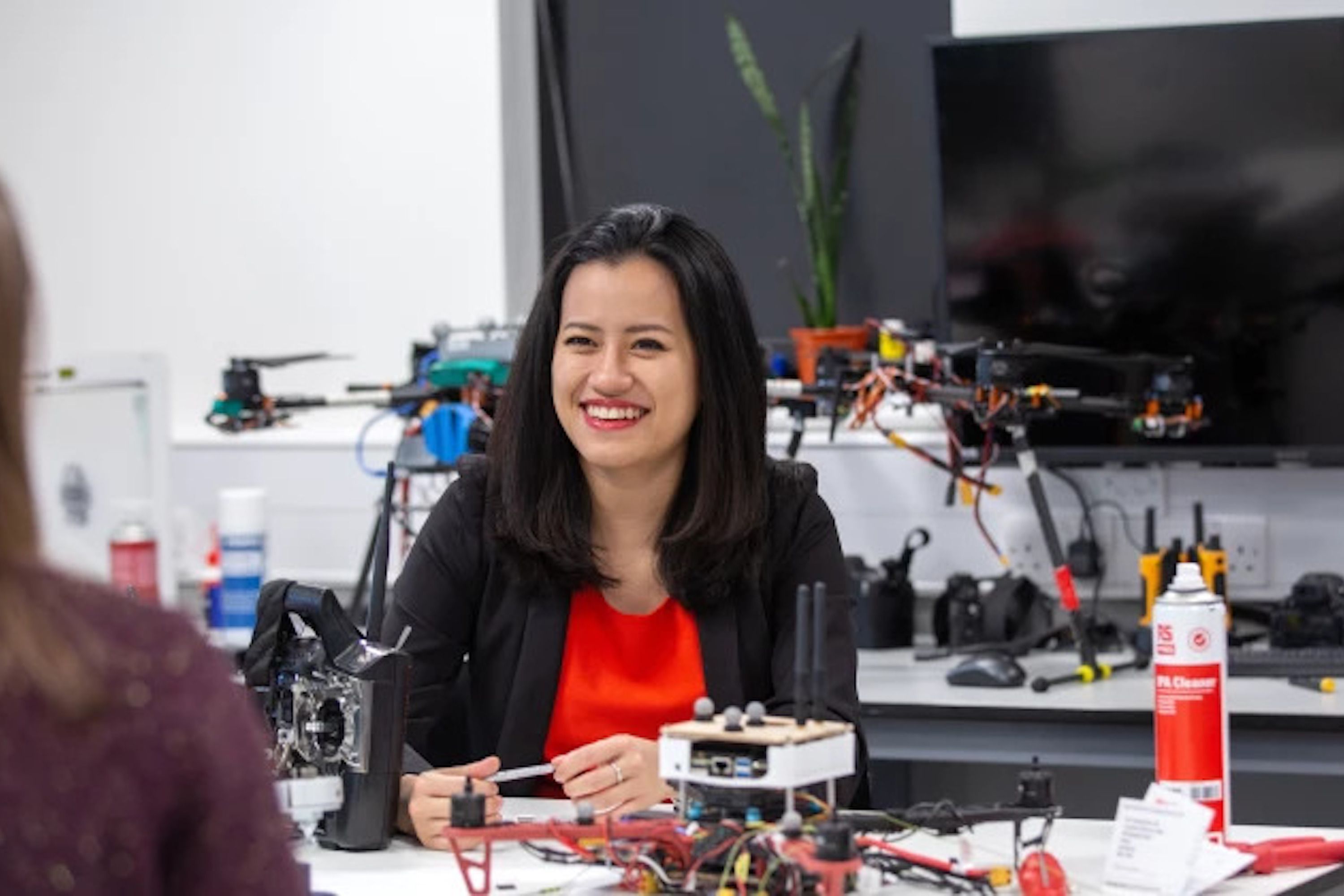
Request info
Learn more about studying at Imperial. Receive useful information about our life in our undergraduate community and download our latest Study Guide.

Events, tasters and talks
Meet us and find out more about studying at Imperial.

Terms and conditions
There are some important pieces of information you should be aware of when applying to Imperial. These include key information about your tuition fees, funding, visas, accommodation and more.
You can find further information about your course, including degree classifications, regulations, progression and awards in the programme specification for your course.
Programme specifications